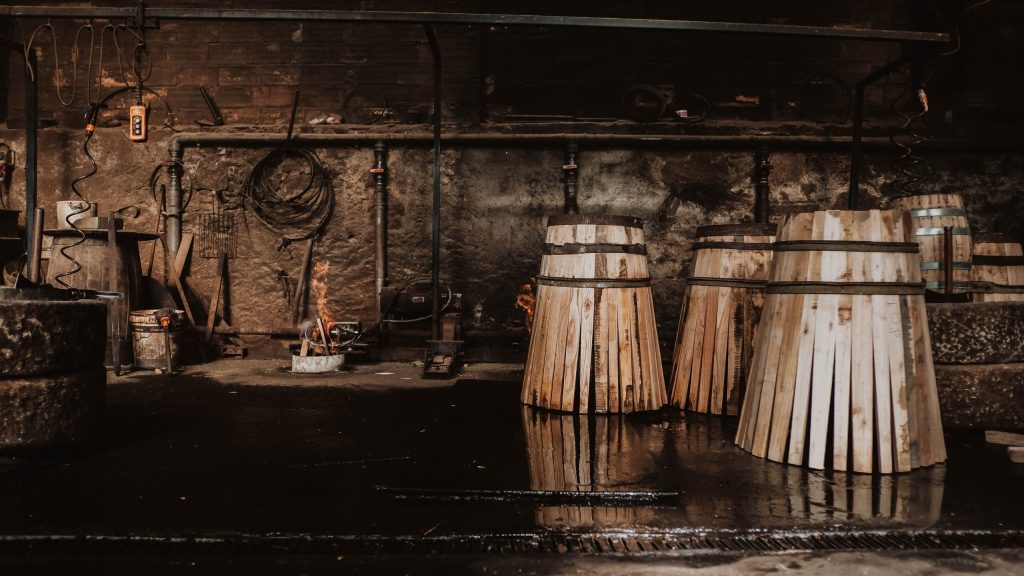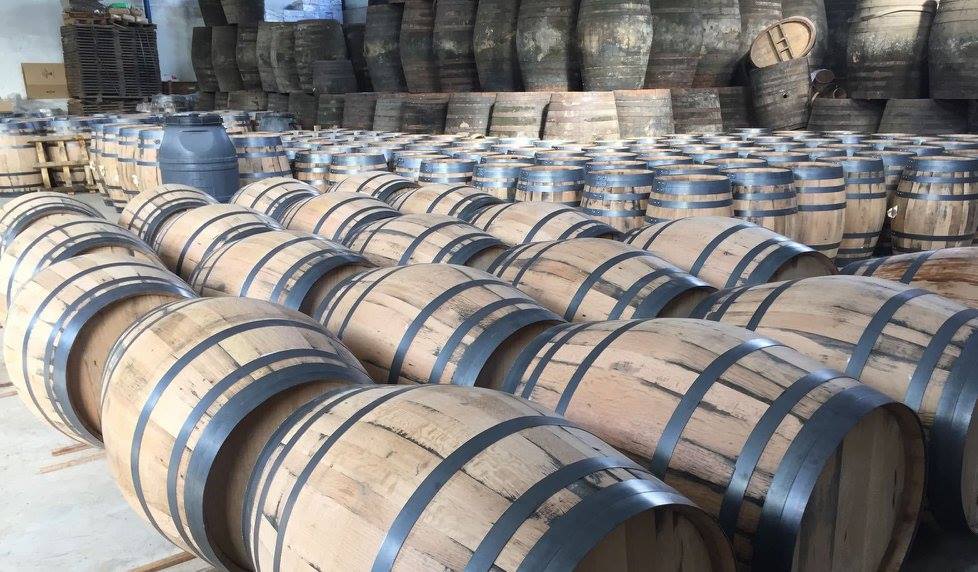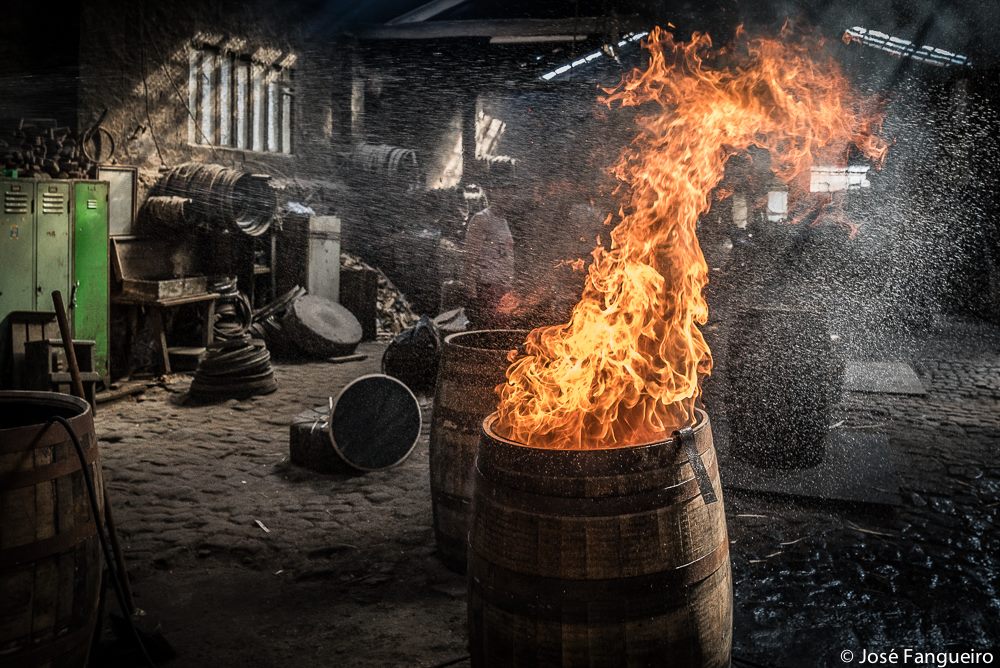Our cooperage is still very much run along traditional lines, so whilst we have invested in machinery such as laser guided machining to produce are staves and a semi-automatic press to fit the staves, most of what we do as a barrels supplier in Portugal involves a hammer and a lot of skill from one of our coopers.
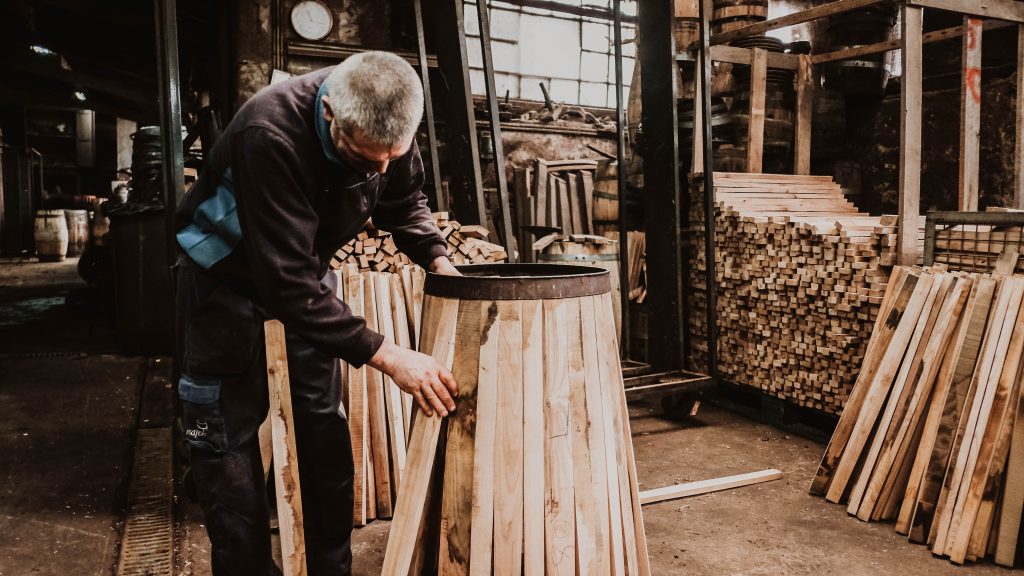
The first thing that a cooper will do is to choose staves that fit well together to make the initial cone shape that will later be bent to form the bilge of the barrel – the cooper will have a large selection of staves to choose from and will use his experience to piece them together to give the barrel the right balance. This cone of staves then has a temporary hoop fitted to hold them loosely in place and is set above a small fire to toast them and make them more pliable; whilst some cooperages use gas flames for this process, we are still old-school and our fires are made from off-cuts from stave production. The cooper will keep a careful eye on the toast and when he sense the moment is right, the staves are bent into shape to give the bilge shape to the barrel and more temporary hoops are added. Adding these temporary hoops is done with an old-fashioned metal wedge and a hammer and require absolute precision by the cooper, a skill that takes years to perfect.
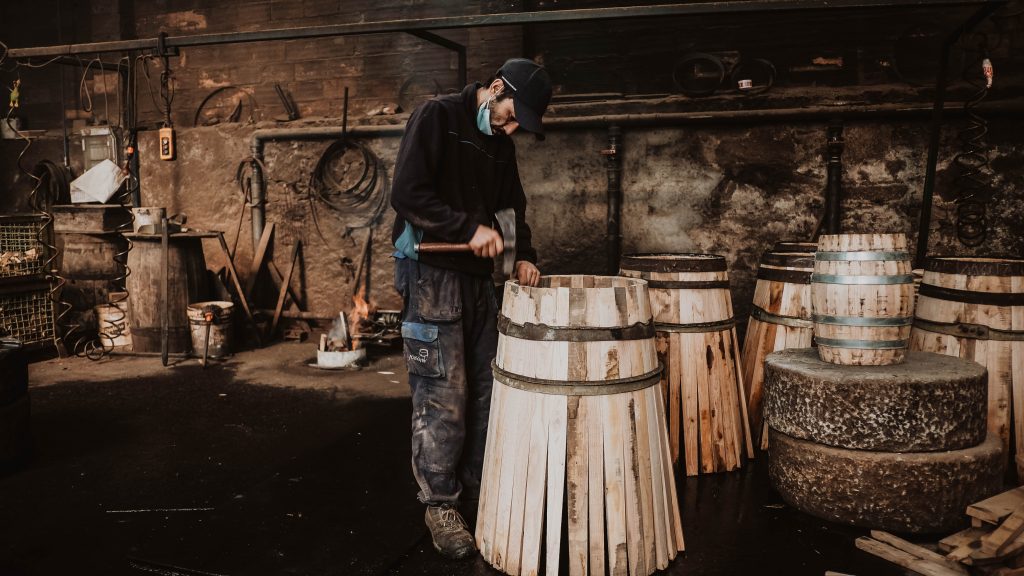
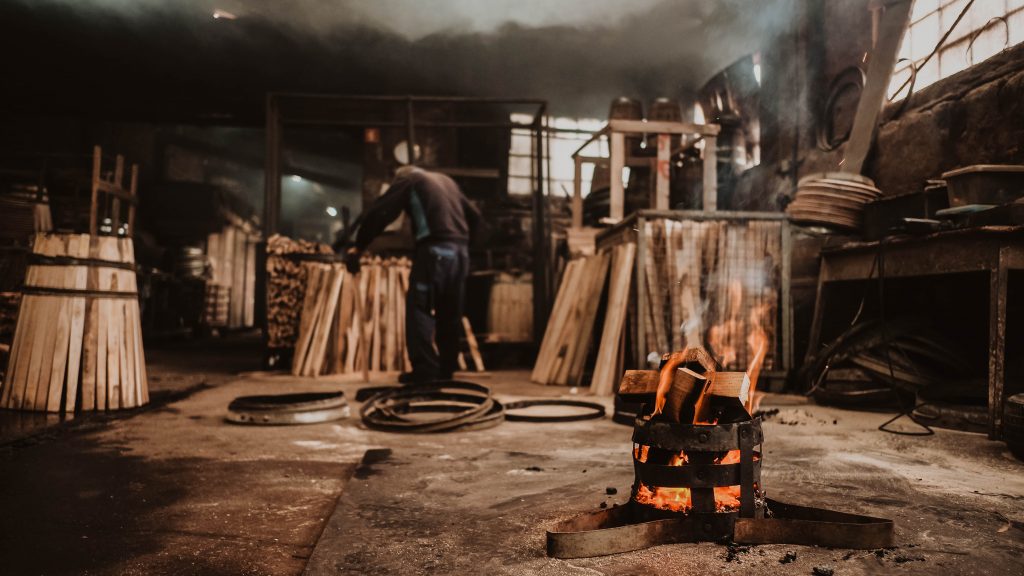
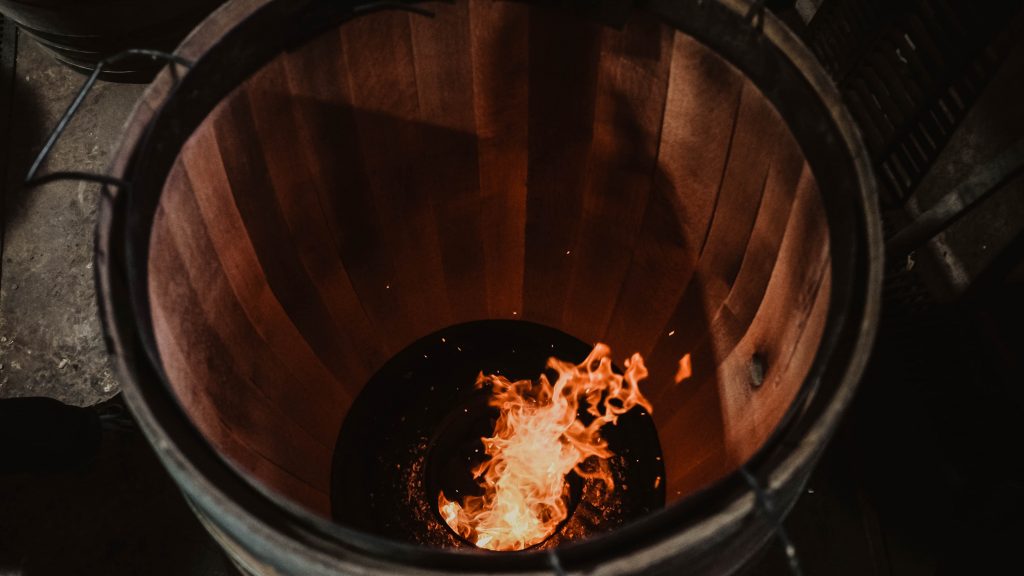
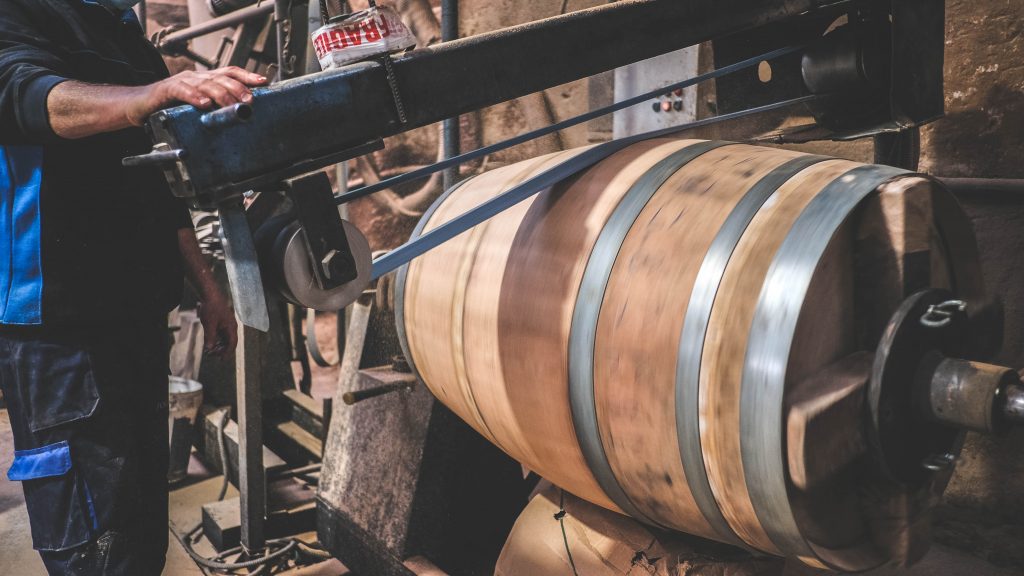
Once the barrels have been left to stand for a while, the temporary hoops can be removed to allow sanding to tidy up the surface of the barrel after all the hammering and then the permanent hoops can be added (this time with the help of our semi-automatic hooping machine. Incidentally our hoops are cut and riveted by hand in house so that we can control every possible part of production ourselves.
Our approach is always that the wood from which we make our staves is the magical ingredient that makes our barrels so special (be it virgin oak or chestnut or used port barrels), so that means that we need to treat it with reverence. So that is why we only use the wood itself to toast (and char) the barrels and of course why we never use sulphur in any of our processes. We also feel that the cooper’s art should always stay at the heart of barrel making, so we have resisted too much mechanisation of our production process. If you would like to see our coopers in action, we always welcome visitors so that you can see for yourself!

